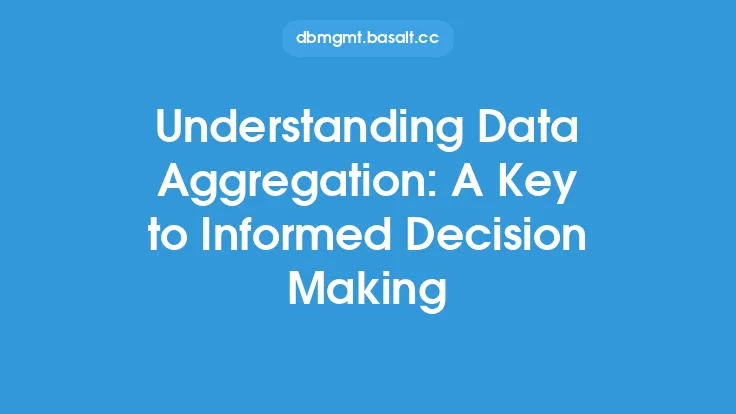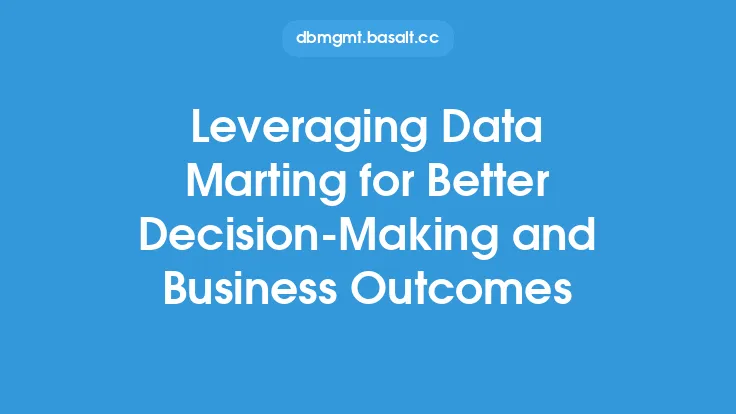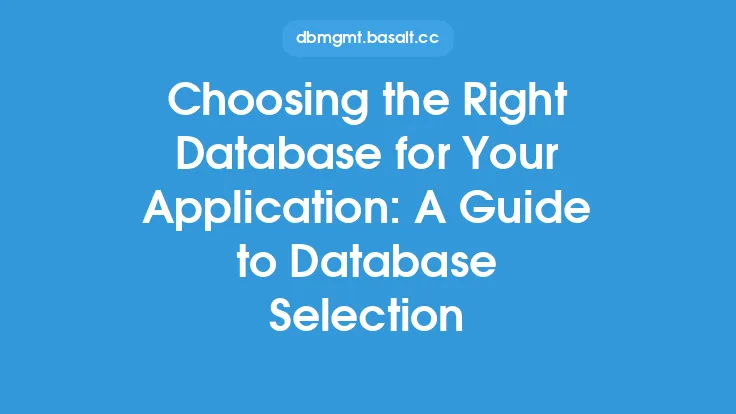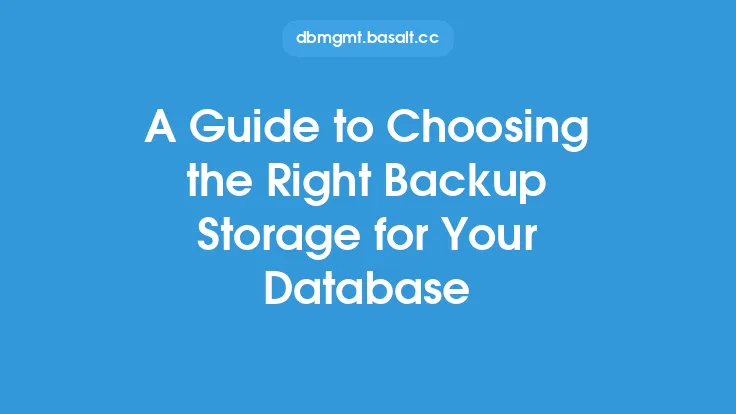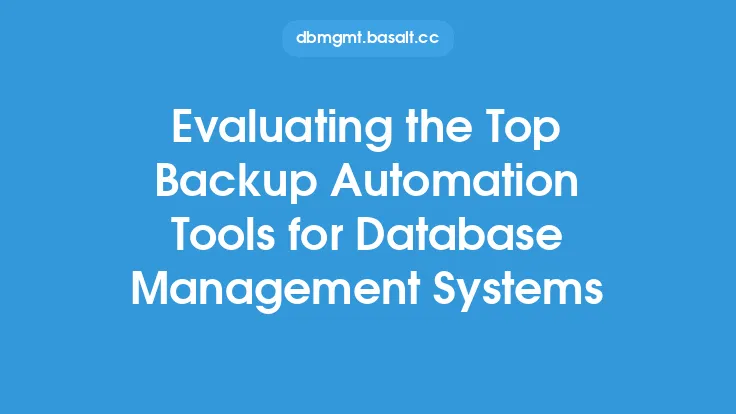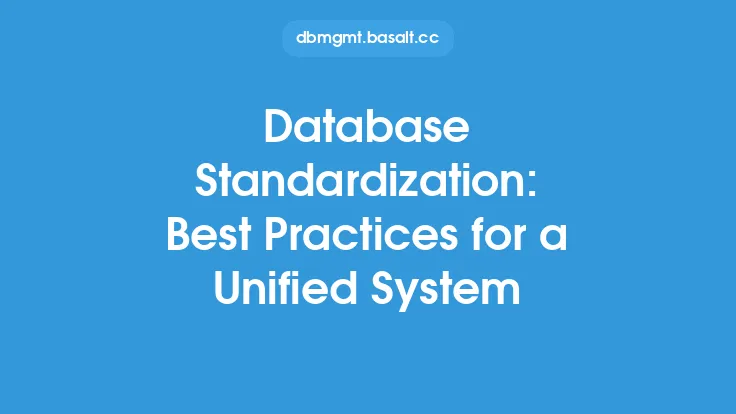When it comes to selecting a database vendor, the process can be overwhelming, especially with the numerous options available in the market. A thorough evaluation of database vendors is crucial to ensure that the chosen vendor meets the specific needs of an organization. This evaluation process involves assessing various factors, including the vendor's reputation, product features, scalability, support, and cost. In this article, we will provide a comprehensive checklist for evaluating database vendors, enabling informed decision-making.
Introduction to Database Vendors
Database vendors provide a range of products and services that cater to the data management needs of organizations. These vendors offer various types of databases, including relational, NoSQL, cloud-based, and hybrid databases. Each vendor has its strengths and weaknesses, and understanding these differences is essential for making an informed decision. Some of the leading database vendors include Oracle, Microsoft, IBM, and open-source vendors like MySQL and PostgreSQL.
Evaluating Vendor Reputation
Evaluating a vendor's reputation is a critical step in the selection process. This involves researching the vendor's history, customer base, and market presence. Some key factors to consider when evaluating a vendor's reputation include:
- Industry recognition and awards
- Customer testimonials and case studies
- Market share and growth rate
- Financial stability and investment in research and development
- Compliance with industry standards and regulations
Assessing Product Features
The product features offered by a database vendor are a crucial consideration in the evaluation process. Some key features to assess include:
- Data types and structures supported
- Query language and indexing capabilities
- Data security and access control features
- Scalability and performance capabilities
- Support for data analytics and business intelligence tools
- Integration with other tools and platforms
Scalability and Performance
Scalability and performance are critical factors in evaluating a database vendor. The chosen vendor should be able to support the growing needs of an organization, handling increasing amounts of data and user traffic. Some key considerations include:
- Horizontal and vertical scaling capabilities
- Support for distributed databases and cloud-based deployments
- Performance optimization features, such as caching and indexing
- Support for high-availability and disaster recovery configurations
Support and Services
The level of support and services offered by a database vendor is essential for ensuring the smooth operation of an organization's database infrastructure. Some key considerations include:
- Documentation and online resources
- Community support and forums
- Paid support options, such as enterprise support and consulting services
- Training and certification programs
- Regular software updates and maintenance releases
Cost and Licensing
The cost and licensing model of a database vendor can have a significant impact on an organization's budget and total cost of ownership. Some key considerations include:
- Licensing models, such as perpetual, subscription-based, or open-source
- Cost of support and maintenance
- Cost of upgrades and migrations
- Discounts for volume purchases or long-term commitments
- Compliance with industry standards and regulations
Security and Compliance
Security and compliance are critical considerations in evaluating a database vendor. The chosen vendor should be able to provide a secure and compliant database infrastructure, protecting sensitive data and ensuring regulatory compliance. Some key considerations include:
- Data encryption and access control features
- Support for industry standards, such as GDPR and HIPAA
- Compliance with regulatory requirements, such as PCI-DSS and SOX
- Security certifications, such as ISO 27001 and SOC 2
- Regular security audits and penetration testing
Conclusion
Evaluating database vendors is a complex process that requires careful consideration of various factors, including reputation, product features, scalability, support, cost, and security. By using the checklist provided in this article, organizations can make informed decisions when selecting a database vendor, ensuring that their data management needs are met and their database infrastructure is secure, scalable, and compliant with industry standards and regulations. Ultimately, the chosen vendor should be able to provide a robust and reliable database infrastructure, supporting the growth and success of the organization.
